Pichler & Traupmann Architects
Wulfenia Hotel
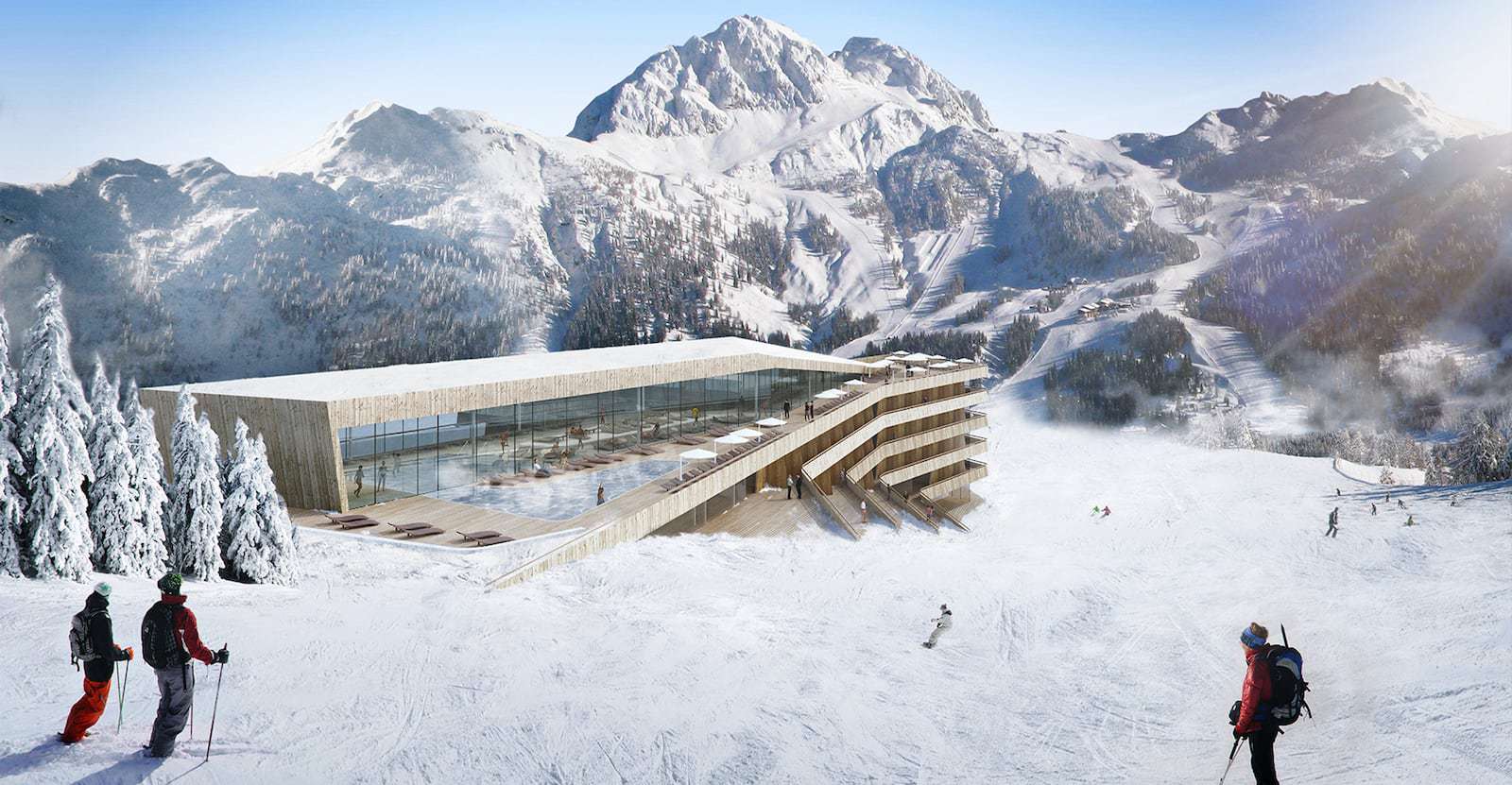
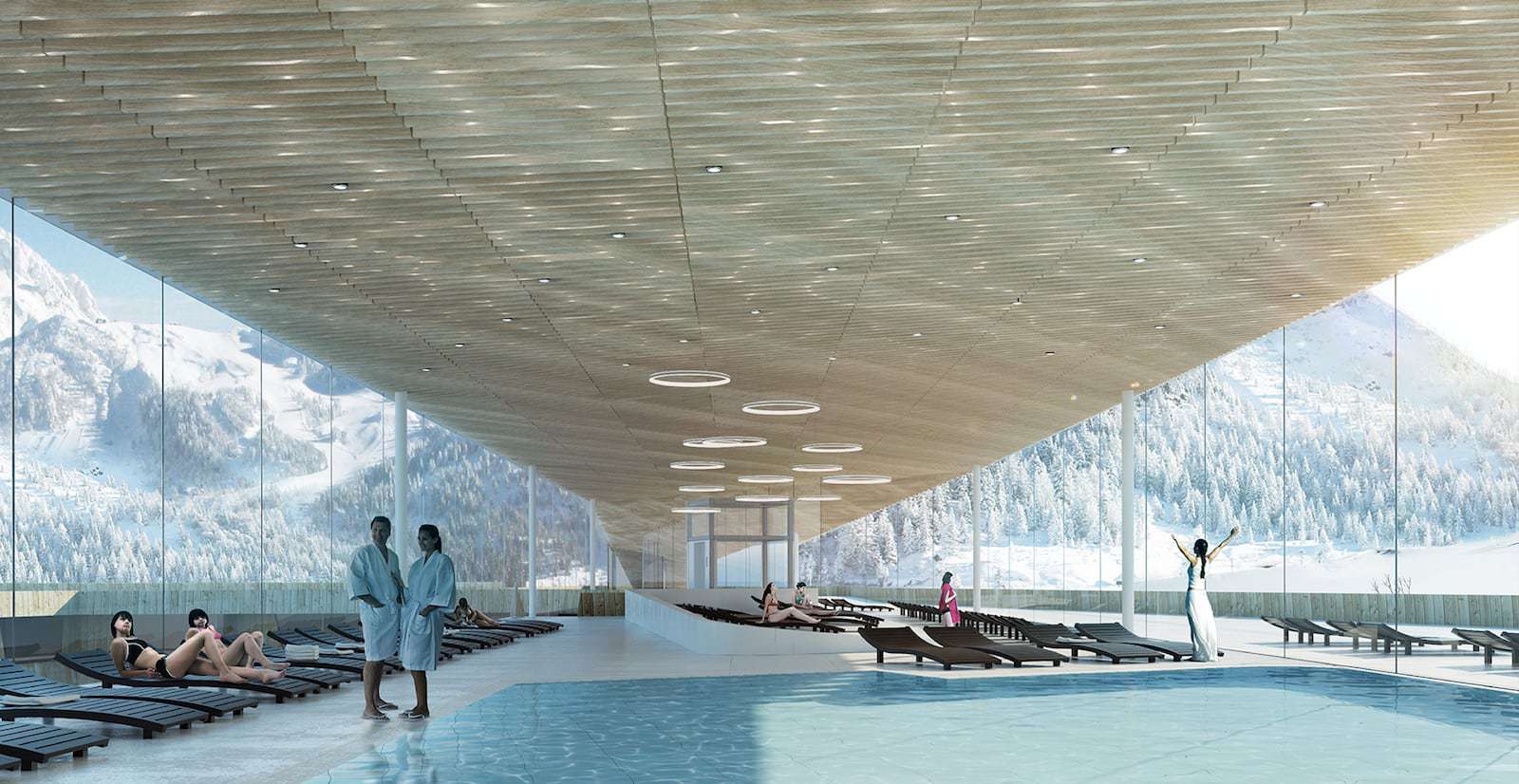
The hotel stands directly on the ski slopes, isrooted in the surrounding landscape and relates to the world of themountains, both those nearby and those further away.
Year
2016
Venue
Nassfeld
State
Competition
Category
Mixed
Size
12.611 m²
Year |
Venue |
State |
Category |
Size |
|---|---|---|---|---|
2016 |
Nassfeld |
Competition |
Mixed |
12.611 m² |
Year
2016
Venue
Nassfeld
State
Competition
Category
Mixed
Size
12.611 m²
Wulfenia – trademark for an entire region
Wulfenia has become the epitome of an entire region:
On the one hand as the name of a kind of plant with glowing blue flowers and a striking quality that enriches the landscape.
On the other as the name of a hotel with a formative significance for the place, which has contributed to the history of the Nassfeld.
In a certain sense these two terms must be regarded as an icon of this region, as in their conceptual depth they are inseparably linked with each other.
The design for the renovation of this hotel examines this significance and attempts to highlight the building’s unmistakable character in a new way and to strengthen it.
This is the best location in the place and is deserving of this kind of acknowledgment
The hotel stands directly on the ski slopes, is rooted in the landscape that surrounds it, and at the same time relates to the mountain world, both nearby and further away.
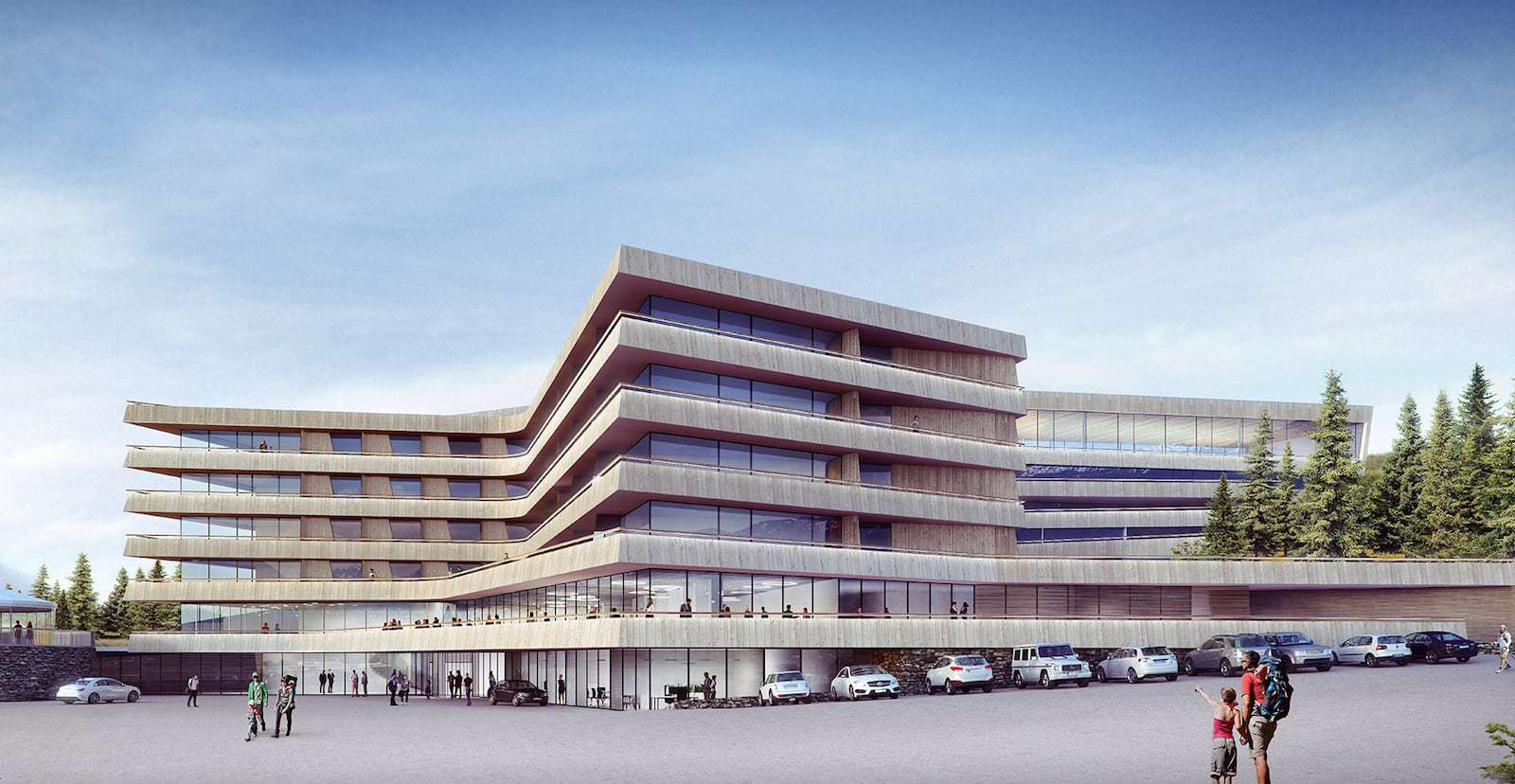
The rooms in the interior of the hotel open tothis landscape in generously sized terraces. They capture thelandscape or allow it to flow through the hotel, as it were. Thisapplies to all the rooms, but in particular to the swimming area fromwhich and from its terrace there are expansive view of the naturalsurroundings.
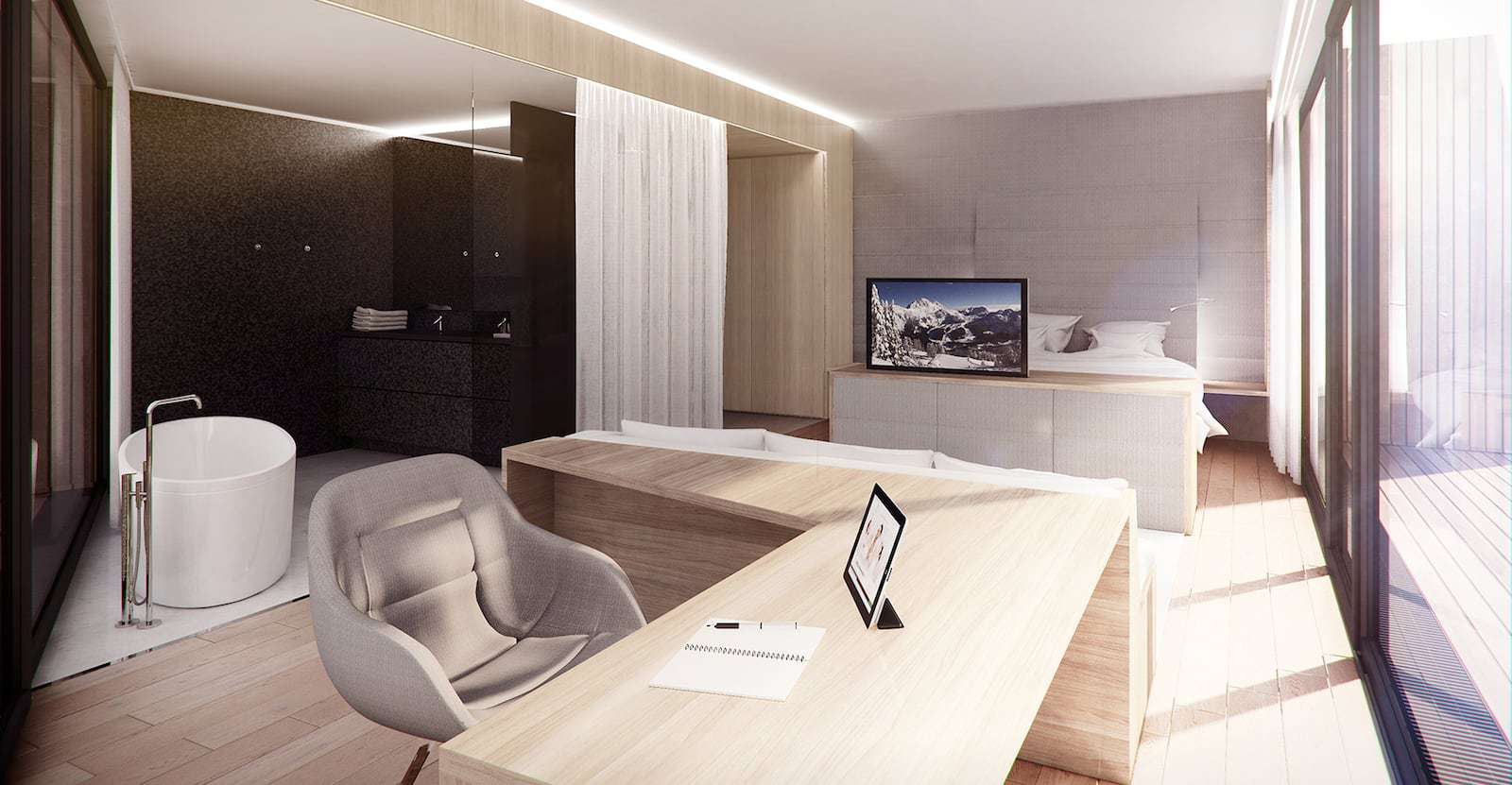

An inspection of the existing building, inparticular of the sauna and pool area in the depths of the lowerfloors, resulted in real disappointment due to the lack of opennessin this part of the building. The rooms made a similar impression.
Consequently, it seemed all the more important to transform this obvious deficiency into precisely the opposite.
With very careful consideration the hotel isrenovated as far as the building fabric itself was concerned. Theentire north-south facing tract is retained, the rooms alreadyrenovated are included in the concept. All rooms are given agenerously sized terrace at the front, which was in fact intended inthe basic disposition and which allows the hotel to operate a fullservice in summer. The kitchen wing is also preserved and may beadapted at a later point. Whatever the case it is given afunctionally improved delivery and removal system.
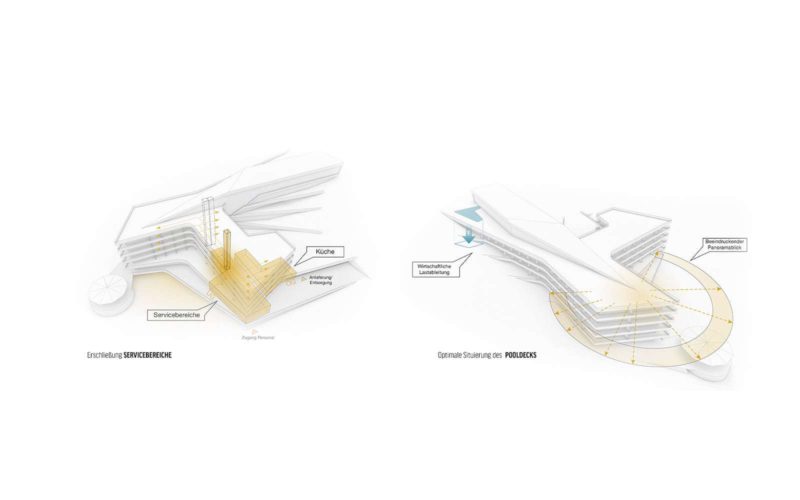
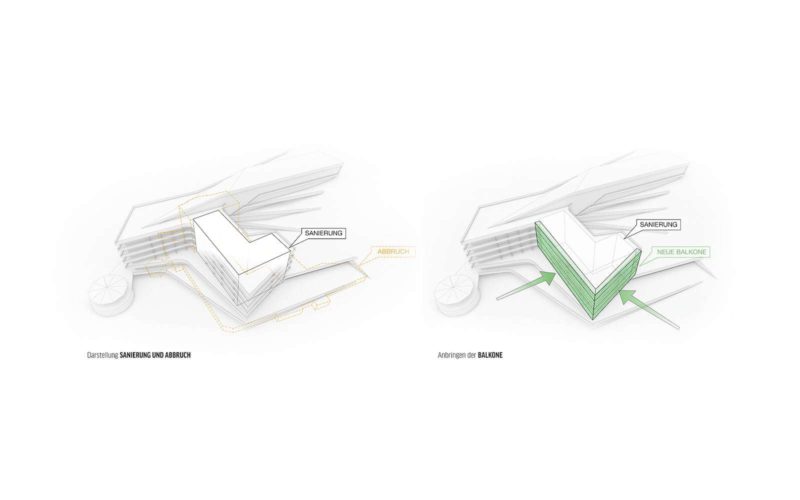
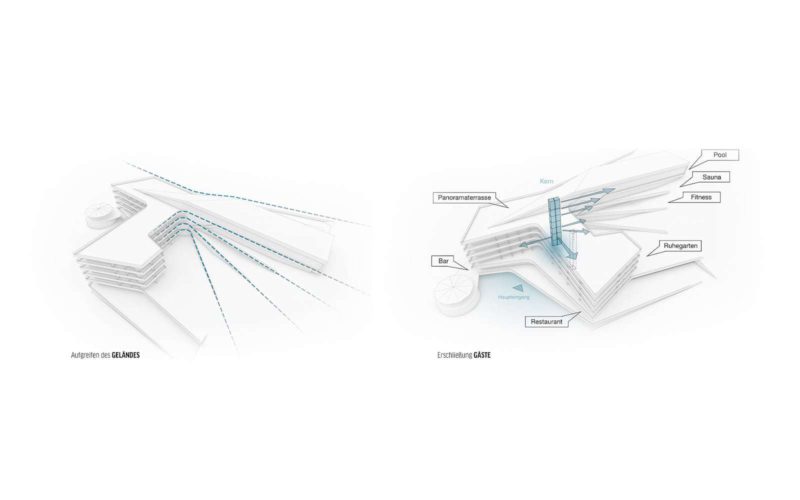
The southern tract facing the ski slope iscompletely demolished, including the swimming and sauna area. Thedifference in the storey heights to the neighbouring wing with rampconnections that are unsuitable for use make it impossible to operatethis building in a contemporary way.
As this decision opens up an area for buildingsite, the principal measure of the extension is implemented here. Interms of the possible impact on other parts of the building, it is inevery regard preferable to concentrate construction activity on adefined site.
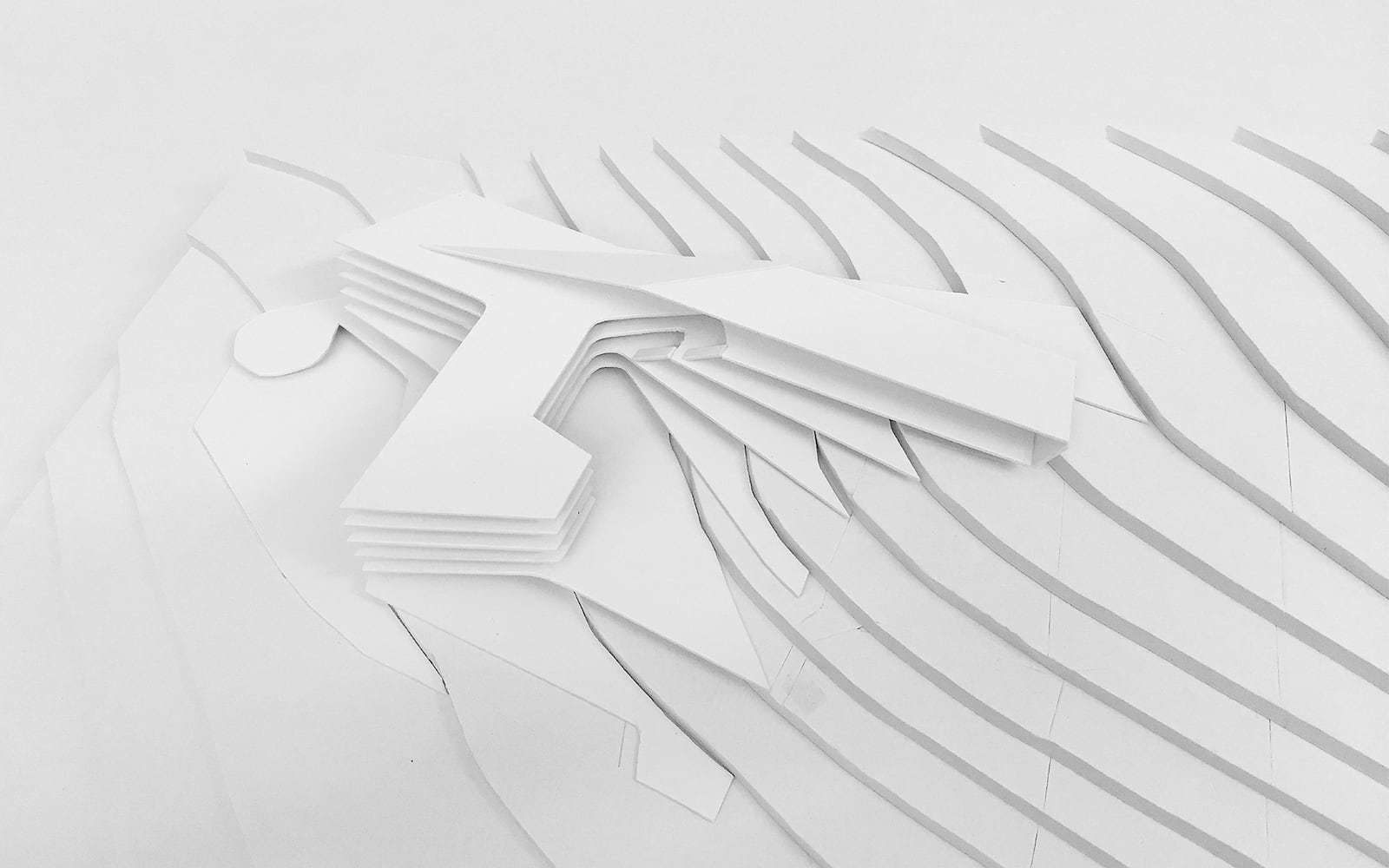
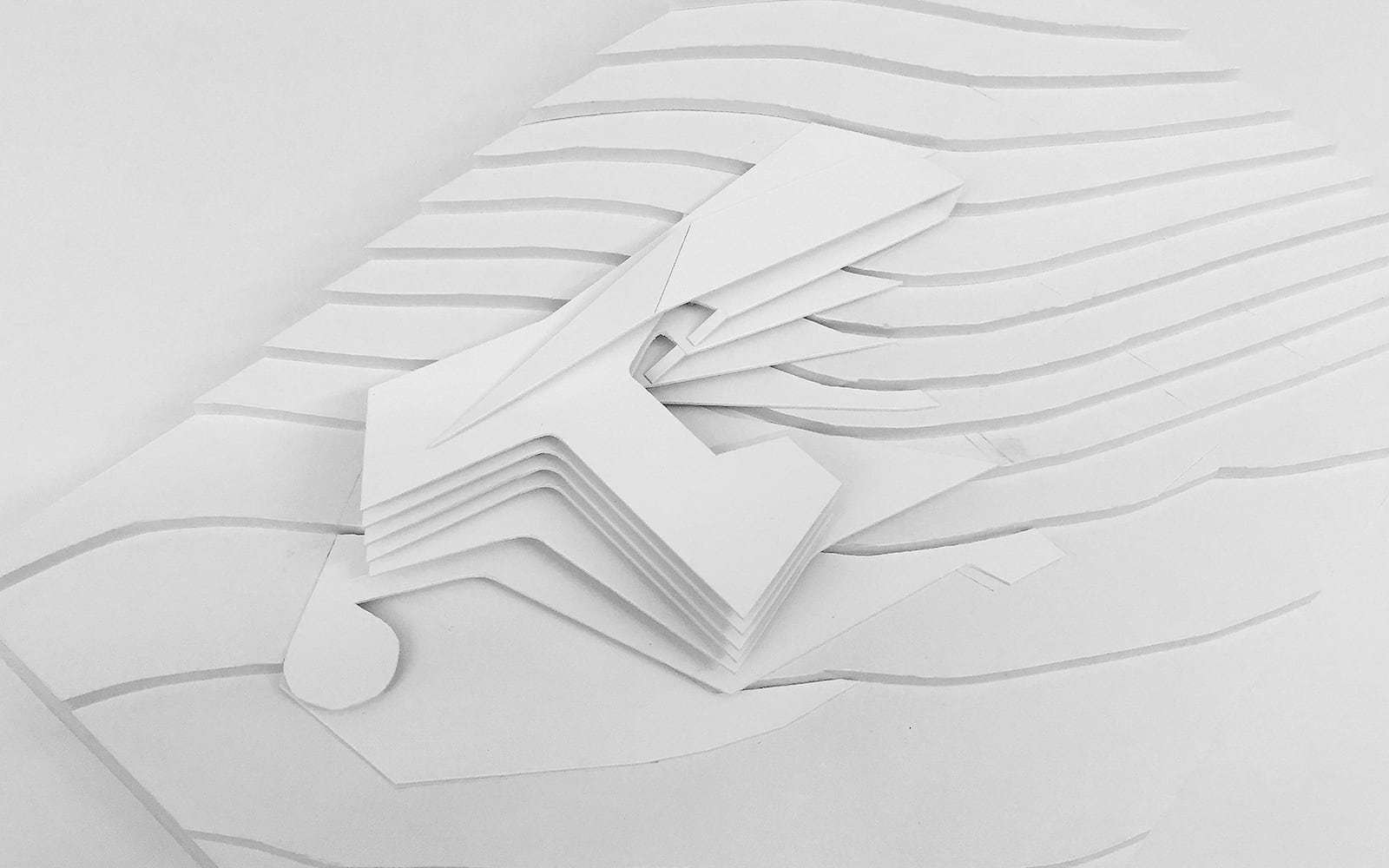
In positioning the garage, the location on a slope is exploited. It is used in a sense as a plinth for the bedroom wings above. In a stepped system that allows the measures to be implemented economically, the slope is excavated up to the level of the swimming area, where the heavy pool rests on natural ground and therefore does not have to expensively supported by massive columns.
The approach drive to the hotel is newly conceived and given a canopy roof. The confusing system of the original entrance and circulation is completely redesigned and laid out in a way that facilitates orientation. Moving through a striking void you arrive on the upper floor, where you can breathe in the mountain world from the bar and lounge area. The restaurant along with the newly made terrace that offers a view of the Gartnerkofel is also located here. Naturally, the new circulation is placed centrally and in such a way that it can be quickly reached by the guests.
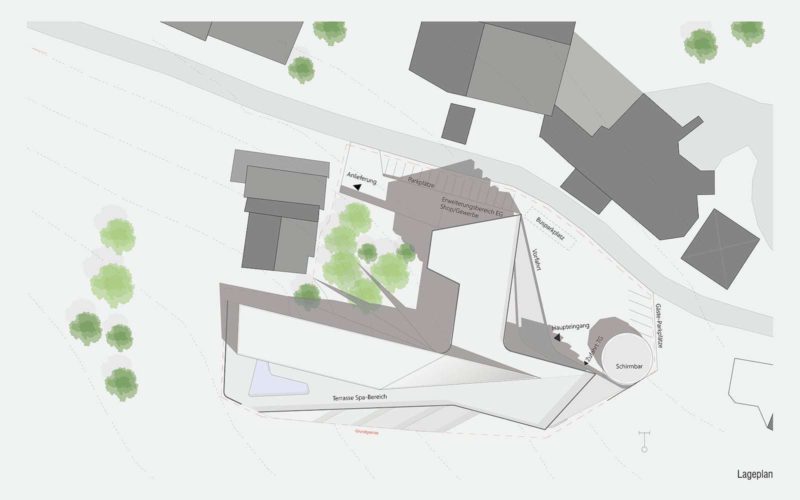
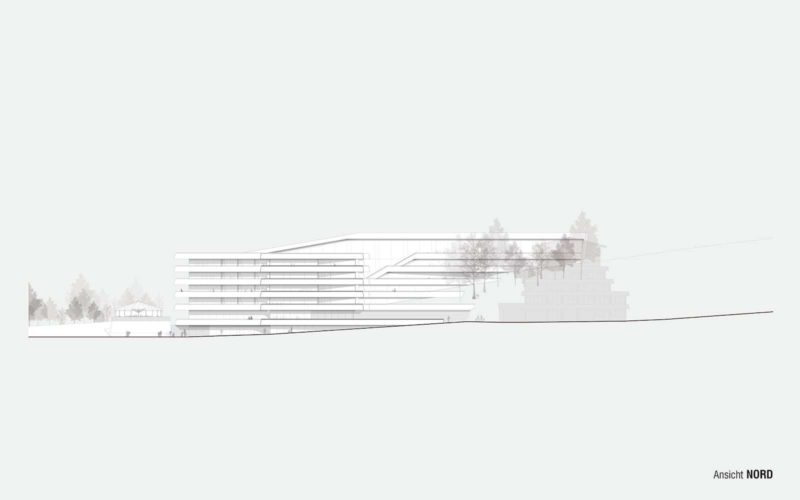
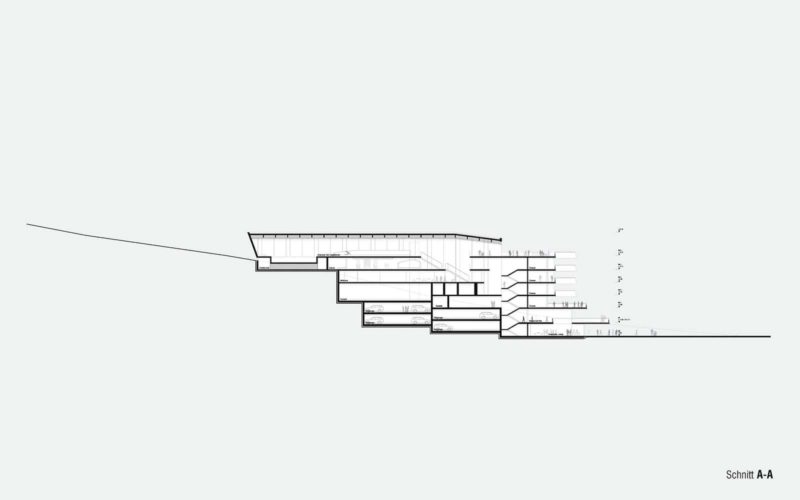
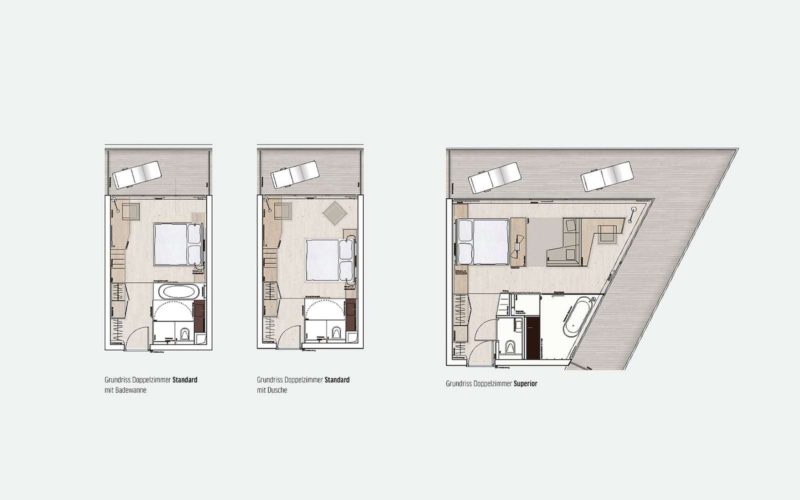
The intention is also that the hotel’sappearance should reflect the iconic quality mentioned above. It isto be a unique hotel and should stand out in its setting. It shouldbe a modern hotel, not in a “Lederhosen Alpine style”. But itshould also incorporate regional characteristics and materials–natural elements such as fabrics and wood – interpreted in acontemporary way, and in this way satisfy the aims regardingsustainability.

Architecture
Client
Private
Hard facts
Sart of planning: 2016
Usable floor area: 11.643,52 m²
Gross floor area: 12.611,34 m²
Gross cubage: 42.165,41 m³
Location: Nassfeld Carinthia, AT
Function: Hotel
Scope: Invited Competition
Renderings
isochrom, Vienna